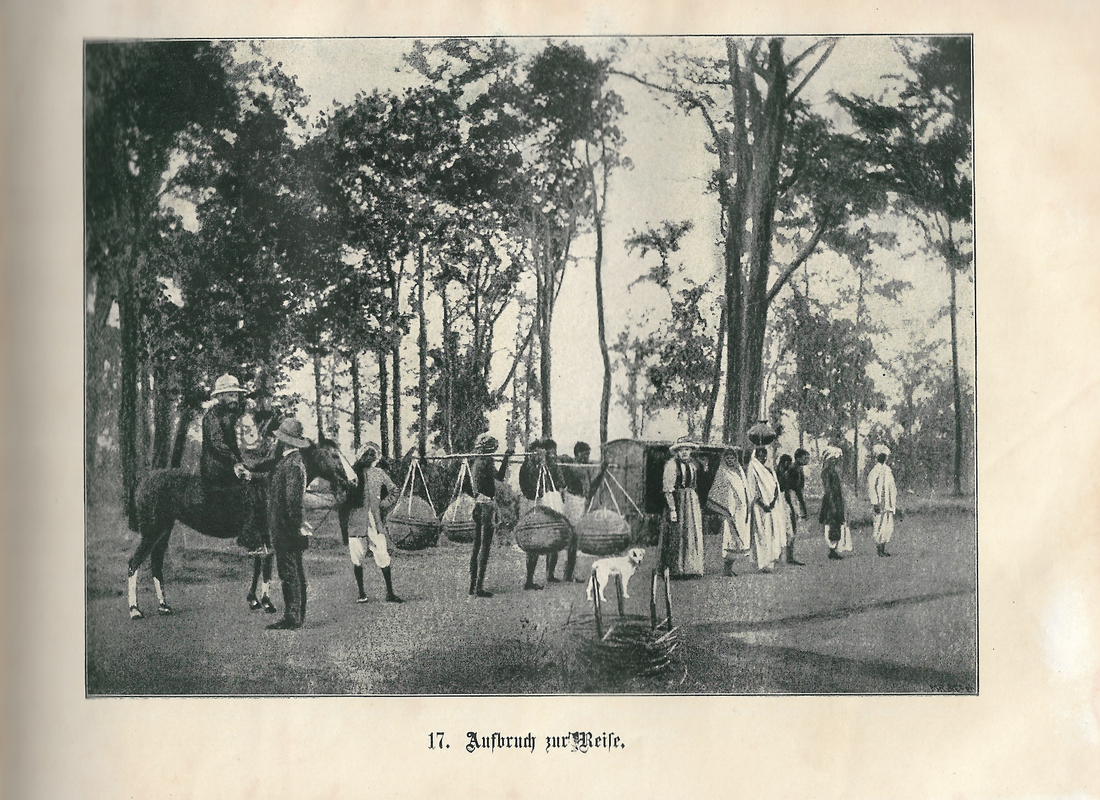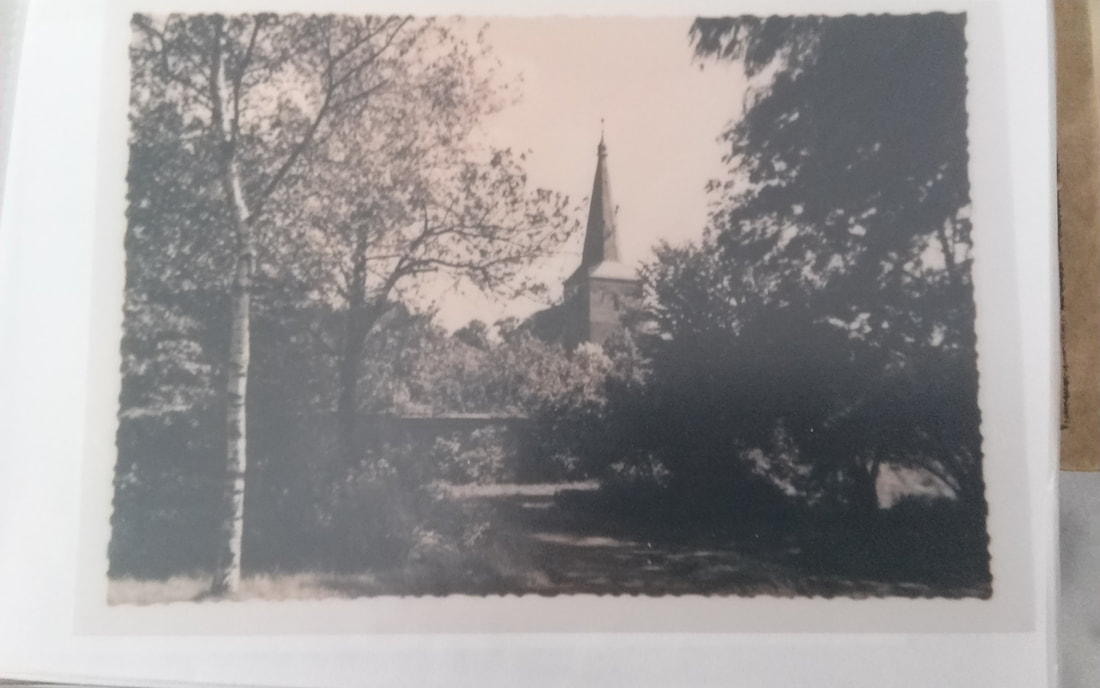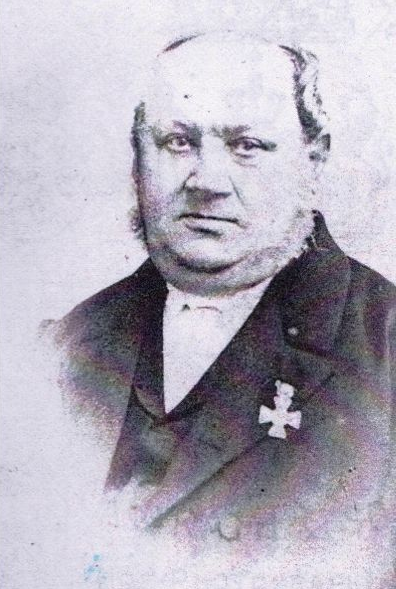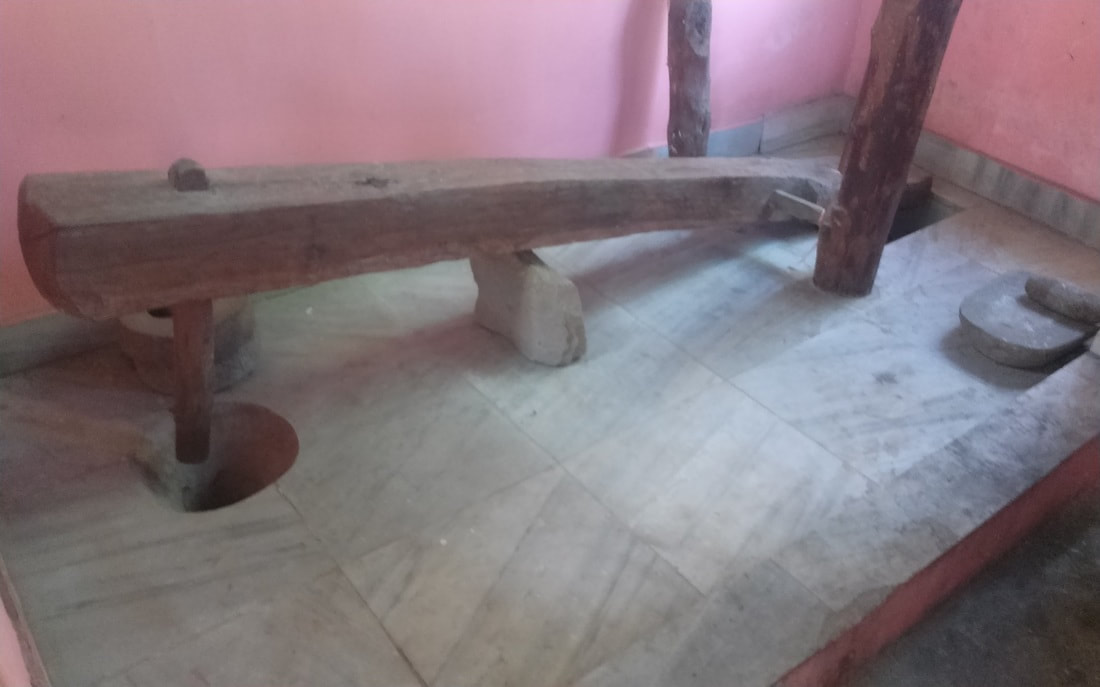|
Much of my career in the world of nonprofits has been to promote mentoring. Here is the opening chapters that features a mentoring relationship that impacted Ferdinand Hahn's life. From the parsonage at the top of the hill the new Superintendent of the Ketzin Evangelical Lutheran Church, the Reverend Knuth, was observing the troubled teenager lying alone under the pear tree. He had previously tried to reach out to the boy, but Ferdinand evaded everyone after his failed escape. The pastor walked down the hill and approached the daydreaming lad with caution. If he could, he hoped to offer the young lad friendship, guidance and encouragement – whatever would be received. The quiet crunch of his steps upon the grass interrupted Ferdinand’s wandering thoughts. The boy was startled by the round-faced bright-eyed pastor and dreaded receiving a long-winded sermon. Instead, the Pastor sat down next to the boy on the grass in silence. The pastor was a new arrival in town and began asking about the Havel river and Ketzin. Ferdinand was surprised by his friendliness. No elder in town ever asked him inquisitive questions or shown him any authentic empathy. Something stirred within Ferdinand’s heart. Uncharacteristically the lad sat up, straightened his hair and addressed the community leader with respect. He noticed that the pastor's jacket was worn and loose, as if he didn't care so much about appearances. Even though the Pastor was not comfortable sitting on the grass, he settled and attentively listened as the boy told about the river’s ebbs and flows. As they continued to talk about a variety of things, Ferdinand found, for the first time in his life, an adult genuinely interested in hearing his dreams, fears, and burning wanderlust. From that day on, Ferdinand was welcomed into the pastor’s home. It became his first haven of hope. In entering the cleric's library, Pastor Knuth widened his arms to draw attention to the walls covered in books: “Here lies your world to discover. I welcome you to find in these books your adventure, your education, your destiny.” Thus, began the young Ferdinand’s enlightenment. The teen browsed the bookshelf noting the gold-etched leather bindings of authors: Hegel, Goethe, Schlegel. The son of a Prussian shoemaker browsed the pamphlets scattered on the desk. More unfamiliar names: Bartholomäus Ziegenbalg, Philipp Jakob Spener, and Johannes Evangelista Gossner. He would become familiar with all that was housed in these books — idealism and alienation, history and romanticism, philosophy and theology — a strange yet rich intellectual and spiritual garden. Ferdinand’s overbearing father accepted the charity extended by the Pastor to tutor his son. The arrangement permitted the troubled lad time to study at the parsonage after first fulfilling his duties in the cobbler’s shop every morning — except for the Lord’s Day of course. The father’s only expressed ambition was that the boy be confirmed. Perhaps the pastor could also bring his son around to repentance and make a good Christian of him. Ferdinand Karl Philipp Hahn received his Confirmation on a foggy Sunday after Easter, 15 April 1860. His preparation reviewed basic Christian doctrines, church authority, the Sacrament of Baptism, and Confession, the forgiveness of sins, and the Eucharist. The Luther’s Catechism was designed as a series of questions and answers. Ferdinand was encouraged not just to memorize, but to consider the questions, and even ask his own questions. Ferdinand appreciated being encouraged by Pastor Knuth to think about the meaning of everything. The host of artisan witnesses present at the ceremony were content that he recited the Ten Commandments, the Apostles' Creed, and the Lord's Prayer. The ceremony was meant to represent the opening of mind and heart to God, but Ferdinand confessed later that he merely professed Jesus on his lips and endured the ritual in a fashionable and legal way. Pastor Knuth, who had seven grown daughters, viewed his new student as a son. Under his patient and jovial tutelage, the senior cleric provided Ferdinand an extensive education in the humanities and sciences as taught in the Gymnasium. He introduced Ferdinand to the study of language: Greek, Latin, French. Ferdinand absorbed everything. The old Pastor believed his future was full of promise. Ferdinand had his doubts. Provincial life would always hold him back. He began to wonder if his father was right, if there was any use in education if all he could ever be was a shoemaker. One snowy evening, Ferdinand sat down next to the warm fire in the library, warmed by a hot cup of chocolate. The Pastor loved to tell stories that put most of his parishioners to sleep, but Ferdinand loved to hear his drawn-out tales. “The Sounding tree, the talking bird and the golden water were three things the king needed to build a magical garden. I think you are like the many people who have gone in search of these,” Pastor Knuth began. “Most people don’t find it. But listen to this tale and you tell me if you will be among those who discover the mystery of life.” The shoemaker of the village wanted to please the king, so he went to find a wise old hermit. When the shoemaker asked about how to find the sounding tree, the talking bird and the golden water, the old hermit replied, “many have come to me with the same question, but no one has returned, because they did not do exactly what the bird told them to do.” The shoemaker promised that he would do as the bird told. "Take this road," said the hermit, "and you will hear the sounding tree." And, in fact, after three days' travel, the shoemaker heard the sounding of the tree. Before he came up to it, he had to pass through a great heap of stones that had the form of human beings. Figures that reminded him of people who had left his village, the old milk-maid, the blacksmith, the gardener. Then he heard a voice call, "Good morning, what do you want?" He looked around and saw the speaking bird on the sounding tree. "It is you I want," said the shoemaker, "and the sounding tree and the golden water." The bird said, "Break off a bough and take me with the basket down from the tree. Then go to the rock over there, there lies a key. Take the key and open the door in the rock. With the vessel that you will find in the rock, take of the golden water, and when you come out of the rock, do not look behind you, but go straight on." The shoemaker went and did as he was told, but as he came out of the rock, the men-like stones came after him, and cried, "Brother, take me with you." Hearing the noise, he looked around, and was changed on the spot into a stone. When the shoemaker never returned, his son set out on the road and came to the hermit, and asked the way to the sounding tree, and if his father had passed by that way. "Yes," said the hermit, "but he cannot have done exactly as the bird instructed him to do, and so he has not come back." "What road will I have to take to come to the sounding tree?” The hermit showed him the way and gave him the same directions as his father had been given. After three days, he heard the tree sound, and came to the stones. Seeing the stones, he thought they were men, and touched them, but they were only stones. The bird wished him good morning and asked him what he wanted. "You," he answered, "and the sounding tree, and the golden water." Now he had to do the same things as his father had done. When he had done so and stepped off the rock, one of the stones made a fearful noise, and cried, "Son, take me with you." But he went on, taking no heed of the noise, though it grew louder and louder. However, he was so frightened that he fell to the ground. When he recovered, and rose, he saw all those who had gone before him now standing around him, released from stone. Together they returned to the king and placed a branch of the sounding tree in the ground, placed the bird on the branch and a bowl of the golden water next to it. They could not see immediately any change in the garden until the next morning. When they woke, the whole garden had transformed into the most beautiful garden in all the lands. Pastor Knuth reiterated the moral of the story, “don’t get distracted, my son, and you shall find your beautiful garden. Your studies are the gateway through which God will lead you.” “This is simply a fairy tale,” Ferdinand complained. “Very well then,” the Pastor went on, “let me give you an apt example to show you what is possible to move beyond the stone figures that imprison you.” He proceeded to tell a story about the man who had mentored him when he was young in Berlin, Johannes Evangelista Gossner. This pastor taught that it was every Christian’s duty to live a life of service; one didn't need academic knowledge to meet the needs of people or share the liberating message of Christ to others; anyone could be a leader with the power of Christ in their life, following the disciplines and teachings from the Bible. When Gossner was sixty-two he intended to retire as a pastor and focus only on managing the Elizabeth Hospital that he had started. But man proposes, God disposes, and Gossner soon found himself embarking on the greatest enterprise of his life. In 1835 he was approached by twelve artisans who wanted to become missionaries. No regional mission would accept these uneducated working-class men. Since Gossner was vocal about the inappropriateness of studying Homer and Ovid for preaching the Gospel, perhaps he would train them. Moved by their devotion and faith, Gossner began to train the working men two evenings and a Sunday afternoon each week in his home. He taught them about how to use two basic tools for teaching others about Christ: The Bible and the Hymnbook. Then he sent out these artisans—stonemason, carpenter, blacksmith, weaver, tailor, shoemaker, butcher, gardener and bookbinder—to Australia. Others came to him with similar requests, so Gossner established a Mission School in Berlin. Gossner wasn’t against learning, he believed in practical education that was centered on community. Students were taught by volunteers from the community, in the Bible, church and mission history, geography and Greek and Latin (useful for reading the New Testament in the original tongue). Candidates, with active spiritual faith, continued to come from the artisan classes. Gossner hoped his students would be hired by European mission societies to work in Europe or abroad. However, few mission agencies were willing to employ his students, so he was compelled to start his own mission agency. Hundreds of men from all parts of the German speaking world, from every class, subsequently ventured out to foreign lands to spread the good news of God’s Realm. Even though he didn't have a lot of faith, this story rekindled Ferdinand’s longing for adventure and he began reading everything he could about missionaries. By candle light at night Ferdinand engrossed himself in reading JC Wallman’s Leiden und Freuden Rheinischer Missionaire or the Hallesche Berichte. A fresh new perspective in these narratives described life — that is the Christian life — as disciplined, pious, a test of moral rectitude, a search for spiritual purification, difficult but attainable. Everything unimaginable was possible, requiring but the littlest faith. These eighteenth-century missionaries were the primary source of the special knowledge of India in Europe. Eventually such knowledge ended up in the tight grip and perverse curiosity of academic philologists. These “experts” on India, however, never left the comfort of their libraries. Already Georg Foster had set the German literary world aflame with the translation into German of the ancient Sanskrit play Shakuntala, an amazing simple story, written well before Christ, portraying the complex relationship between humanity and nature. Ferdinand was curious about the mystical Orient and intrigued with what he was learning about basic humanity. Having no access to academic discourse, he settled for reading about these so called “dark heathen lands.” At times they seemed as devoid of hope as his own homeland, however, the annotations of strange terrains and diversity of plants, animals and people was mysteriously wonderful. The missionary moved the interplay of earthly and theological concerns out of the theoretical into the context of practical experience. Issues of Man, God, Sin and Salvation were discussed in the context of various faiths. Incredible projects in linguistics, ethnography, and religious studies, and social and religious service made up the missionary life. As Ferdinand’s perspective of himself, his people and the world expanded, he recognized the privilege he had over others to be able to see beyond to a greater world. Though he was poor, through charity he had been given so much. As an Indian proverb in one of the journals said: "When someone gives you charity, don’t consider him obliged to do so always. Use it to your best, as the coconut tree uses the water within to its growth, and to bear fruit after." Ferdinand did not need to have seen a coconut to understand. He wondered how he would “use the water” that he had so generously been given.
4 Comments
A sample of the cross cultural relations that existed between the missionary and the original dwellers (Adivasi).  Ferdinand Hahn moved his family from Ranchi to Lohardaga to replace Missionary Lorbeer who already had moved to Ghazipur to the north. The departing missionary had grown weary of the isolation and challenges of the Lohardaga mission station and moved north to revive the Ganges Mission. Ferdinand came with every intention of leaving his preconceptions behind to start afresh in his new endeavor. An entourage of porters carrying all the Hahn’s worldly belongings journeyed along primitive paths through the forest for two and a half days. Doris and the three small children were carried in a pulki. Ferdinand walked about a third of the way, when the terrain was too difficult for his horse. The Adivasi porters sang the whole distance or shouted to each other. Ferdinand thought they must be telling each other crass jokes the way they laughed as they walked freely along the way. Periodically they came upon an opening in the woods and a village surrounded by terraced fields. At each village a new group of men carried their belongings and traveled with them to the next village. This was an age-old tradition among the Adivasi; a reciprocal system using labor in exchange for goods and services. The generosity shown to help a traveler or person in need was never a matter of obligation, it was a matter of reciprocity. Co-reliance sustained the Adivasi peoples for centuries and their most precious jal, jungal, jamin (water, forest and land). This age old practice was easily exploited by the outsiders such as landlords and the English, who were masterful in turning reciprocity into obligation. People who were outside of the money economy were forced to pay tariffs through all kinds of work. Ferdinand of course paid his porters what he could. However, because he did not have much money, he soon came to rely on this system of reciprocity and mutual exchange. Lohardaga was full of promise. Life was quieter and simpler. Doris Hahn was glad to be free of the petty squabbles among missionary wives. Their home had earlier been a converted stables that belonged to a British officer twenty years ago. The Lorbeers had turned the stables into a comfortable home. Ferdinand dreamed that one day he would build a new bungalow with more rooms for his growing family. Local Oraons worked alongside them to assist most generously in helping the new missionary family settle. To secure beams when fixing the roof, they produced a strong rope made from grasses. They suggested where supplies could be obtained and how to prepare for the rains. In exchange the workers were given a modest meal for their services. The Oraon women showed Doris how to utilize the outdoor kitchen, covered by a thatched roof and two mud walls. Most of the room was taken up by the dheki, rice pounder. They taught her how to pump the long wooden beam, balanced on a fulcrum, with her foot, so that the “hammer” on the other end would pound the husk off the few handfuls of rice lying in a hole in the ground. |
Details
Archives
May 2020
Categories |



 RSS Feed
RSS Feed
